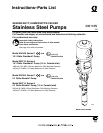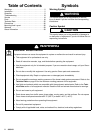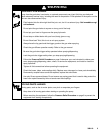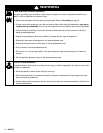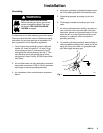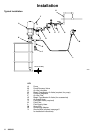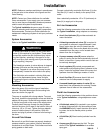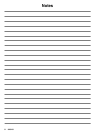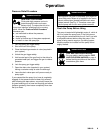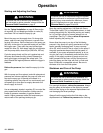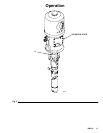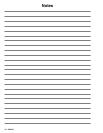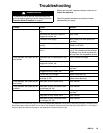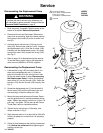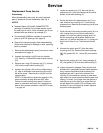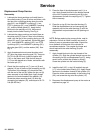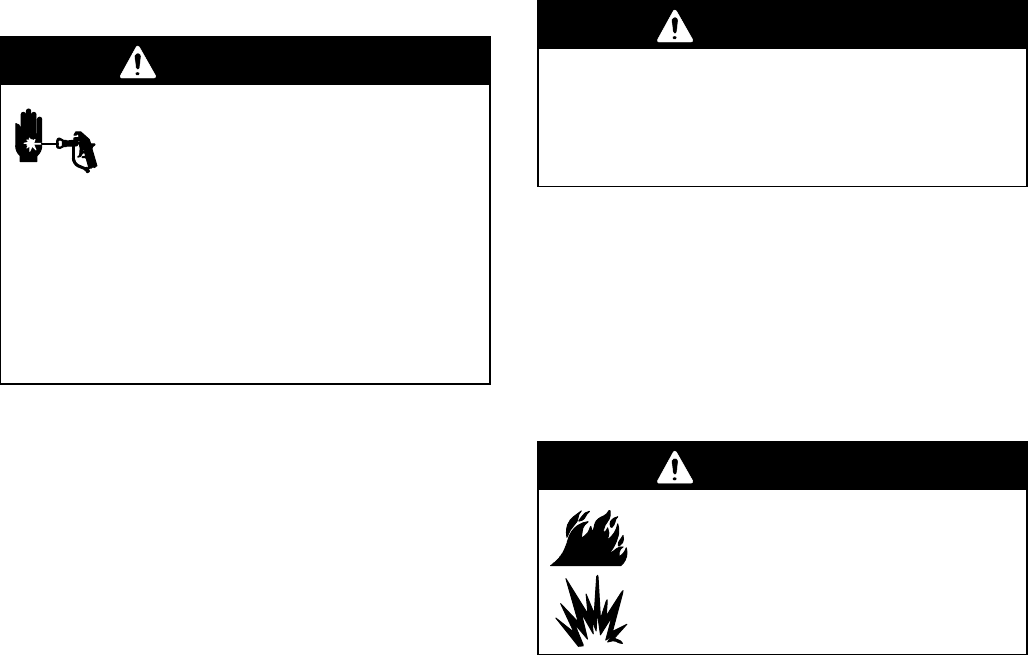
9308118
Operation
Pressure Relief Procedure
WARNING
SKIN INJECTION HAZARD
Fluid under high pressure can be in-
jected through the skin and cause
serious injury. To reduce the risk of an
injury from injection, splashing fluid, or moving
parts, follow the Pressure Relief Procedure
whenever you:
D are instructed to relieve the pressure,
D stop spraying,
D check or service any of the system equipment,
D or install or clean the spray tips.
1. Lock the spray gun trigger safety.
2. Shut off the air to the pump.
3. Close the bleed-type master air valve (required in
your system).
4. Unlock the gun trigger safety.
5. Hold a metal part of the gun firmly to the side of a
grounded metal pail, and trigger the gun to relieve
pressure.
6. Lock the spray gun trigger safety.
7. Open the drain valve (required in your system),
having a container ready to catch the drainage.
8. Leave the drain valve open until you are ready to
spray again.
If you suspect that the spray tip or hose is completely
clogged, or that pressure has not been fully relieved
after following the steps above, very slowly loosen the
tip guard retaining nut or hose end coupling and relieve
pressure gradually, then loosen completely. Now clear
the tip or hose.
WARNING
Moving parts can pinch or amputate your fingers or
other body parts. When air is supplied to the motor,
the air motor piston (located behind the air motor
plates) moves. See Fig. 2. Therefore, never oper-
ate the pump with the air motor plates removed.
Flush the Pump Before Using
The pump is tested with lightweight motor oil, which is
left in to protect the pump parts. If the fluid you are
using may be contaminated by the oil, flush it out with
a compatible solvent before using the pump. If the
pump is being used to supply a circulating system,
allow the solvent to circulate until the pump is thor-
oughly flushed.
WARNING
FIRE AND EXPLOSION HAZARD
For your safety, read the section FIRE
AND EXPLOSION HAZARD on page 4
before flushing and follow all the recom-
mendations given there.



